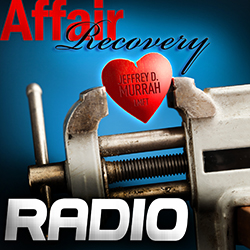What has “Doing it your way” gotten you in terms of affair recovery? Many of you have chosen this option in the aftermath of an affair. From the Affair Recovery Survey, roughly 2/3 of the couples responding report that they tackled affair recovery without using counselors or therapists. Those who did involve them only did so after several months of ‘doing it your own way’.
It is understandable that you would want to work on your marriage in the privacy of your own home. I understand that. With all the emotions, shame and guilt, it makes sense to look at that option. Talking to others about your marital problems feels like you are admitting that something has failed and that is not an enjoyable sensation.
Doing it on your own has some built in problems.
The first problem of doing affair recovery ‘your way’ is the temptation to stop work when the tensions are resolved. When there is tension in the relationship, there is a built in motivation to work on your marriage. When the tension are resolved, there is a temptation to think that everything is fine and the issues are resolved. Yes, the two of you can talk again and feel at ease with each other again, but reducing the tension does not mean that the core issues leading up to the affair have been resolved. Tension reduction only means that the pressure is gone.
The second problem with doing it your way has to do with sequencing. When on their own, many couples start tackling problems in the wrong order. Although you may think that the order in which you are resolving issues makes sense, that same order may be keeping the two of you from addressing important foundational issues.
The mistake is that the issues causing the tension are resolved first, before the root problems and issues are addressed. The two of you focus on symptom reduction rather than the needs associated with root issues. You addressed what you could see, but missed what is often not seen that led to the affair in the first place.
The third issue of doing it ‘your way’ involves context. The two of you may not be able to see the big picture of what all is going on. An outside observer or those with more experience in dealing with affair issues have learned the importance of addressing the issues and the context of the issues.
Since there are several contexts to consider, they are often missed. When these issues are missed, there are often risks of affair relapse (which I addressed in the affair relapse webinar). The affair in your marriage may just be the tip of the iceberg of some other major issues in the family. This is where knowing whether you are dealing with family patterns or sexual addictions rather than just an affair are important. When you do not know what to look for, these are easy to miss.
Don’t get me wrong, I like do-it-yourself (DIY) project, yet when it comes to relationship issues after an affair, doing it your way has its own risks and dangers. Doing it on your own is possible, yet you will want to consider having the help of some experienced eyes to see what you may have missed before falling into a false sense of security thinking that the two of you have resolved all the issues since you are no longer fighting about the affair.
Best Regards,
Jeff

















